35 teen conversation starters to open up communication with your teenager (#19 could be very telling)
Plus the 12 things to consider before even starting the conversation
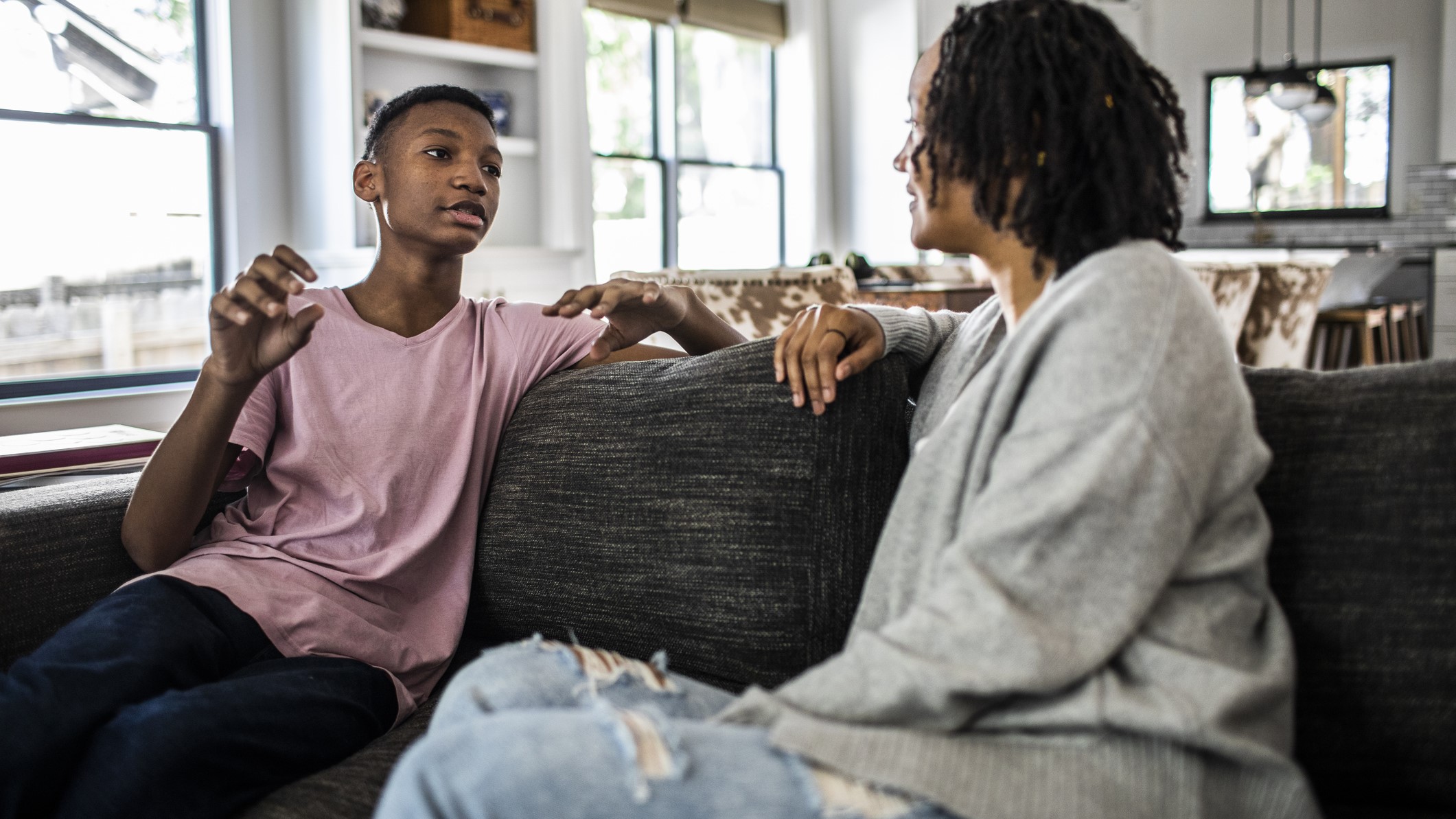

Getting your teen to properly open up to you can be like getting blood out of a stone. Experts have shared the best ways to get that conversation with a young person flowing.
We get it, when they reach a certain age, your former 111-word-per-minute child can close up like a clam. When they might've been once full of questions, the adolescent years are usually one word answers - and this can be difficult if you're trying to broach topics like sexuality and coming out. Checking in on your child's mental health through uncertain times like the cost of living crisis, needs a two-way conversation.
Rachel Vora is a BACP accredited psychotherapist who specialises in children and young people. She told us "Be genuine and transparent in your communication with them. Ask open questions to help move away from one-word answer interactions and invite the teen to come up with solutions to move the conversation forward."
The experts have given us their advice on what to consider before you approach conversations with your teens, and how you can try to set the scene for success. Try our 25 conversation starters to get more than just those frustratingly short replies from your young person. Failing that, we have a selection of pizza-based openers to try, and there can't possibly be failure when pizza is involved, right?
Teen conversation starters to try
Talk about food - everyone eats, right?
- Which foods would make up your favourite dinner?
- If you were a chocolate bar, which one would you be and why?
- Which three historical figures would you most like to invite to dinner?
- If you could only eat one food for the rest of your life, what would it be?
- What can you cook?
- What was for lunch today?
- Today I saw someone mix X and Y together on their plate and I was not convinced... what do you think?
GoodToKnow's deputy editor and mum pf three (including two teenage boys) Heidi Scrimgeour swear by the 'what was for lunch today?' question. "It's a surefire way to get my uni-going eldest to talk to me, it's simple to the point and everyone has lunch and dinner right, so it's relatable."
TV and social media
- Did you see X on Y? It was hilarious really reminded me of you/dad/your gran
- Have you ever made a TikTok? I was thinking about doing one...
- Tell me something social media taught you - 'today I learned X from Y it was a gamechanger'
- Did you watch *name a trending Netflix series*?
- Tell me your most recommended binge-worthy Netflix series?
- I need a new Podcast to listen to, can you recommend any?
Past and present life
- What is your dream job?
- What makes you smile the most often?
- How do you cheer yourself up on a bad day?
- Do you ever get the feeling that it's going to be a great day when you wake up, and what makes you feel that way?
- Describe your perfect day to me.
- Which event are you most looking forward to this year?
- What's your dream job, and can we do anything to help you get there?
- What is your proudest achievement?
- What do you wish you could change about the world?
- What's the most important thing you've learned about yourself in the last year?
- What's your favourite holiday memory?
- Is there a day out anywhere you'd like to have, just the two of us?
- If you could time travel, which era would you visit?
Would you rather questions
- Would you rather never play video games again or never use your favourite mobile app again?
- Would you rather spend a day without your phone or a day with no people at all?
- Would you rather only use email to communicate or only use voice calls (no video calls)?
- Would you rather read only e-books or read only physical books?
- Would you rather live without a microwave or live without a toaster?
- Would you rather only be able to watch movies starring Jim Carrey or only be able to watch movies starring Robert DeNiro?
- Would you rather watch Friends everyday for the rest of your life or never see Friends again?
- Would you rather never wear deodorant or have really bad dandruff?
- Would you rather wear winter clothes all year long or summer clothes all year long?
- Would you rather cover yourself in peanut butter or ketchup?
- Would you rather only use dog shampoo or never cut your toenails?
Research shows that adolescents are more likely to seek help for difficult situations from family members, where a trusting relationship is already established. When communicating effectively with their parents, teens are less likely to try and work through problems on their own. They are also less likely to be concerned about the stigma relating to mental illness or be concerned about being judged negatively, when communicating with a trusted adult.
Mum-of-two, Fran, has a 13-year-old daughter and a 15-year-old son. She told us "My daughter always communicates with us really well. Even as a young teen, she still does. My son is a different story - we've always had one word answers from him right from starting school, and he was getting worse.
GoodtoKnow Newsletter
Parenting advice, hot topics, best buys and family finance tips delivered straight to your inbox.
But I've finally found something that works - he loves funny memes and video clips, so I save ones I think he'll laugh at. I show them to him when he gets in, or if I need to talk to him about something important. Laughing at something together first seems to break the ice and soften him. If I wait long enough, I can then eventually get him to talk more openly."
Pete English is a highly experienced BACP accredited school counsellor and trainer who specialises in working with children and young people. He told us "If you ask your child 'How was your day, Josh?' He may mumble 'Alright' before heading upstairs to his room leaving a trail of blazer, rugby boots and cloud of Lynx Africa.
But what Josh is presenting may not be really be what’s going on in his head. High on the priority list for Josh might be beating his friend James at Level 27 of Zombie Invasion Army 5. So how do we break through to our teens - without literally permanently patching in an HDMI lead into his PC monitor?"
Pete also shared his top five pizza-based conversation starters.
- "I need your advice: cheese or ham?" This show that you value their opinion. It works well when you need support with anything technical too, i.e. mobile phones.
- "I’m sorry I was wrong. We should have had garlic bread". Surprise them by actually admitting that you make mistakes too.
- "I’m making pizza. Wanna help?" Enlist their support and make them feel needed.
- "Fancy coming with me to get some pizza?" This shows them that you actually want to be with them and spend time together.
- Whilst cooking/preparing the pizza, you could ask "So how is Maria’s arm/brother/face..?" This is really your "how was school" question but cleverly disguised due to your amazing listening skills from the day before.
Mum-of-three, Anya, told us "I asked my quiet teen which colour she'd like to paint her room if she got the choice, I ended up agreeing to actually do it. Neither of us had painted anything more than a picture at school, but managed to paint her room together. We had so much fun doing it, and she really opened up to me - maybe because we weren't looking directly at each other during the process and she found that easier, I'm not sure. It was a great bonding time though."
Rachel shared with us "It can be challenging to know what to say and when to say it. At dinner, ask everyone in the family to share one good thing and one negative thing about their day. Most importantly, the message you want your child to receive is that you are there for them. Try to avoid conversations at the height of distress or telling them what to do. Avoid conversation starters that minimizing their feelings or put blame on others."
How to talk to teens
Now, we know that you know your family and your kids better than anyone, but we also know that lots of parents voice this 'how do I talk to my teen' struggle. So we asked the experts who say that when talking to your teen, try and create a non-judgmental atmosphere. Sometimes it's not what you're saying to your teen but more where and how you're saying it. Mum-of-three Dionne has a 14-year-old son and swears the car is the best time to chat to him about anything; "I read once that in the is almost designed for optimum teen chat. The parent is slightly distracted with driving, so less intense. And you're not facing each other, a lot less stressful. And I have to say I think it works, as soon as we're across from each other at the dinner table it's back to one-word answers."
- Avoid eye contact. Pete said "Many teens find eye contact too confrontational. The best conversations with young people often happen when you are performing your taxi driver duties.
- Do something else when asking questions. Pete's advice is "Chat when cooking, car washing, painting and decorating, as this takes the pressure and focus off them."
- Put your phone away. You might want to be doing something completely different when having conversations with your teen, but being on your phone isn't that thing. It sends the wrong message that you aren't ready to listen or engage with them properly.
- Model good communication with others. When talking to others in earshot of your kids, demonstrate how you listen effectively and resolve conflicts with the pitch of your words and tone of delivery.
- Choose your words carefully. Age appropriate language can work wonders when it comes to getting you teen to open up. Simple language and short sentences will set the scene for them to talk back to you easily.
- Pick the right time. A tired, hungry or stressed teen will be less likely to engage with you.
- Think about your body language. How is your teen responding to you? If they're searching for eye contact, maintain it and turn your body or knees towards them. If they open up while you're doing something facing away from them, keep that space between you.
- Have open-ended questions ready. They'll be more likely to engage if they have to answer a question that doesn't have a yes or no answer. If you have a series of these questions to hand, you'll be ready for them!
- Validate their feelings. Sometimes kids and teens just want to be heard. Don't put yourself under pressure to offer solutions, when empathetic listening and body language is often enough.
- Share your own anecdotes. Kids like to relate to their parents with common ground. Mum-of-two, Lucy, told us this was particularly important to her son. She said "If my son did something that hurt or embarrassed him, he'd immediately ask 'has that ever happened to you?' Finding out the same thing had also hurt or embarrassed me in some way, gave him instant relief from anxiety about it. He then often brings up these shared stories first, if he wants to talk about something else that's worrying him."
- Respect their need to stay quiet. You can't force conversation on them if they really don't want it. Respect their boundaries, step back and try again another time. Pete suggests it's especially important to give them an exit route, adding "Don’t ask them questions whilst blocking their exit i.e. standing in the bedroom doorway."
- You know your child the best - nobody is a better expert in your child than you. You'll have the greatest understanding of their interests that will likely engage them in conversation. Trust yourself that you'll know the right time and find the right words to communicate with them.
If you're in a situation where you suspect they might be engaging in behaviour you'd rather they didn't, try not to be critical and understand their curiosity and why they made certain choices. Try not to 'tell' them why you think they made those choices, instead, gently stating you're worried about them, or ask if there's anything you can do to help them.
If your teen reacts angrily to you, don't take it personally or react with anger yourself. This type of emotion could be a result of confusion, stress, or feelings they don't understand themselves - it could also be hormone related. Help them feel safe, and make it clear your role is to help, and not criticise or judge.
Pete said "Teens are developmentally separating from you, but they are also unsure about this big world. Sometimes they need to know that you are there and accessible. Think toddler taking first steps and looking around for you. They need to be different and they need to rebel in order to become their own person. Listen intently. My son used to say 'Maths is stupid' but he meant maths is really difficult and I don’t understand it at the moment.
I meet with young people every week who are yearning for a good relationship with their parents. They do need to spend a lot of time talking to their friends, but that doesn’t mean that your job is done and you can simply leave them to it. You might be met with a torrent of 'leave me alone' or 'why are you on at me all the time' but that is better than them feeling that you don’t care."
Rachel concluded "Remember that even though you want to fix your child's problems and worries, you are serving them best by being there to support them and help them find their internal strength to navigate challenging emotions. Parents can actively promote their child's mental wellness, teaching them to advocate for themselves, and being there for tough conversations to equip them with invaluable skills to serve them throughout their lives.
The journey towards good mental health is ongoing, and a parent's consistent support is a powerful influence on your child's ability to navigate life with resilience and confidence."
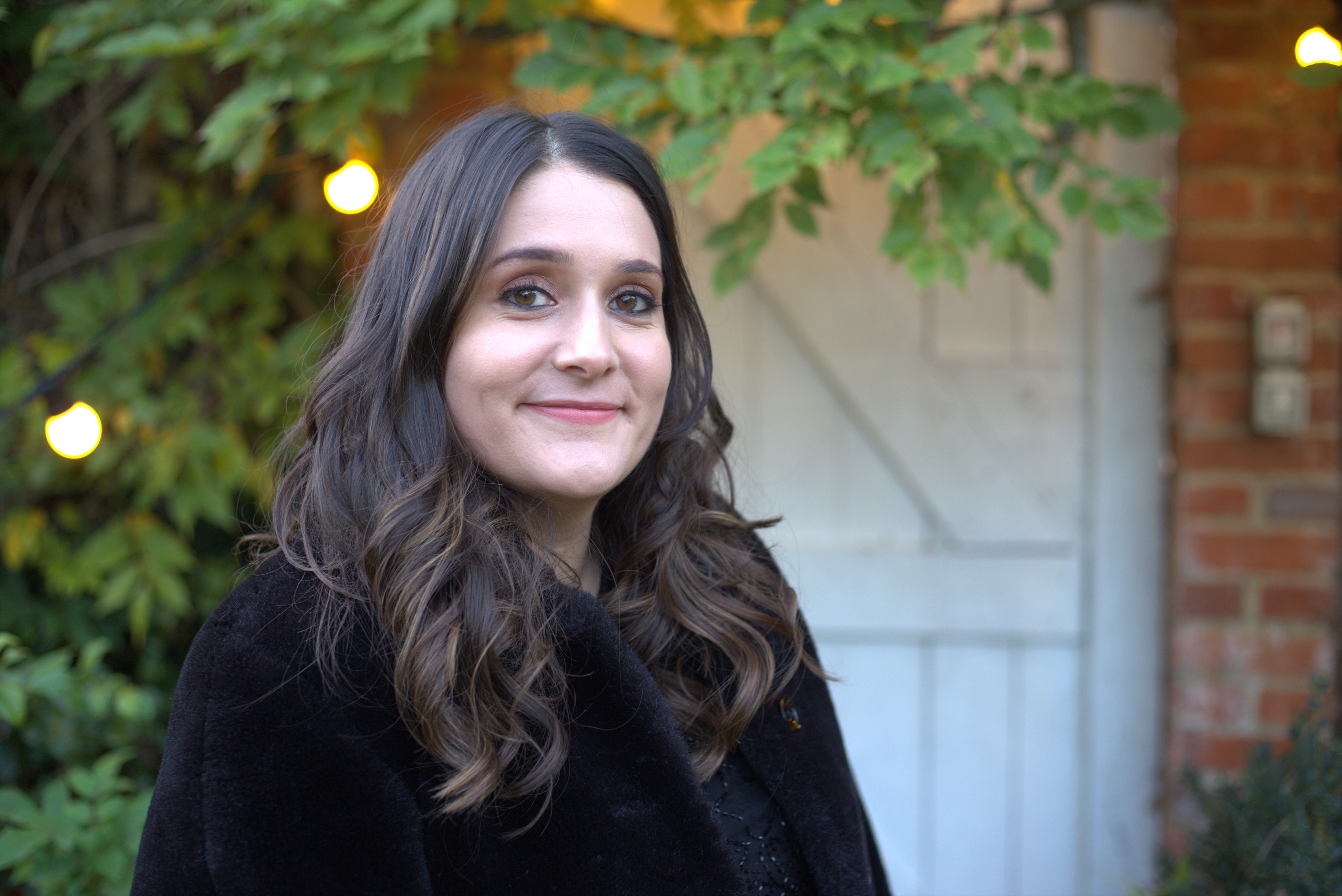
Rachel is a BACP accredited psychotherapist who specialises in children and young people based in Wilmslow, Cheshire. Rachel has over eight years’ experience counselling in school settings supporting students with mental health conditions. She advises schools on their mental health strategies and has been involved in setting up a number of counselling provisions in schools. Her private practice offers therapy to adults, young people and children aged 11 to 25 years.

Pete English is a highly experienced BACP accredited school counsellor and trainer who specialises in working with children and young people, particularly around the affects of parental separation and bereavement. He has a passion for seeing young people get the support that they need and helping them find their voice to talk about their experiences. Pete is also project lead for the bereavement charity AtaLoss which signposts those experiencing grief to appropriate services. He has been working with young people for over 35 years and has managed to bring up three teenagers who have somehow turned into responsible adults with their own families.
Here's the five most important things you should talk to your teen about before they start dating, and what to do if your teenager is drawn to taking risks. Some parents are finding caring for their older children so difficult, they're taking 'teen-ternity' leave - we have everything you need to know about the term.

Lucy is a mum-of-two, multi-award nominated writer and blogger with six years’ of experience writing about parenting, family life, and TV. Lucy has contributed content to PopSugar and moms.com. In the last three years, she has transformed her passion for streaming countless hours of television into specialising in entertainment writing. There is now nothing she loves more than watching the best shows on television and sharing why you - and your kids - should watch them.
-
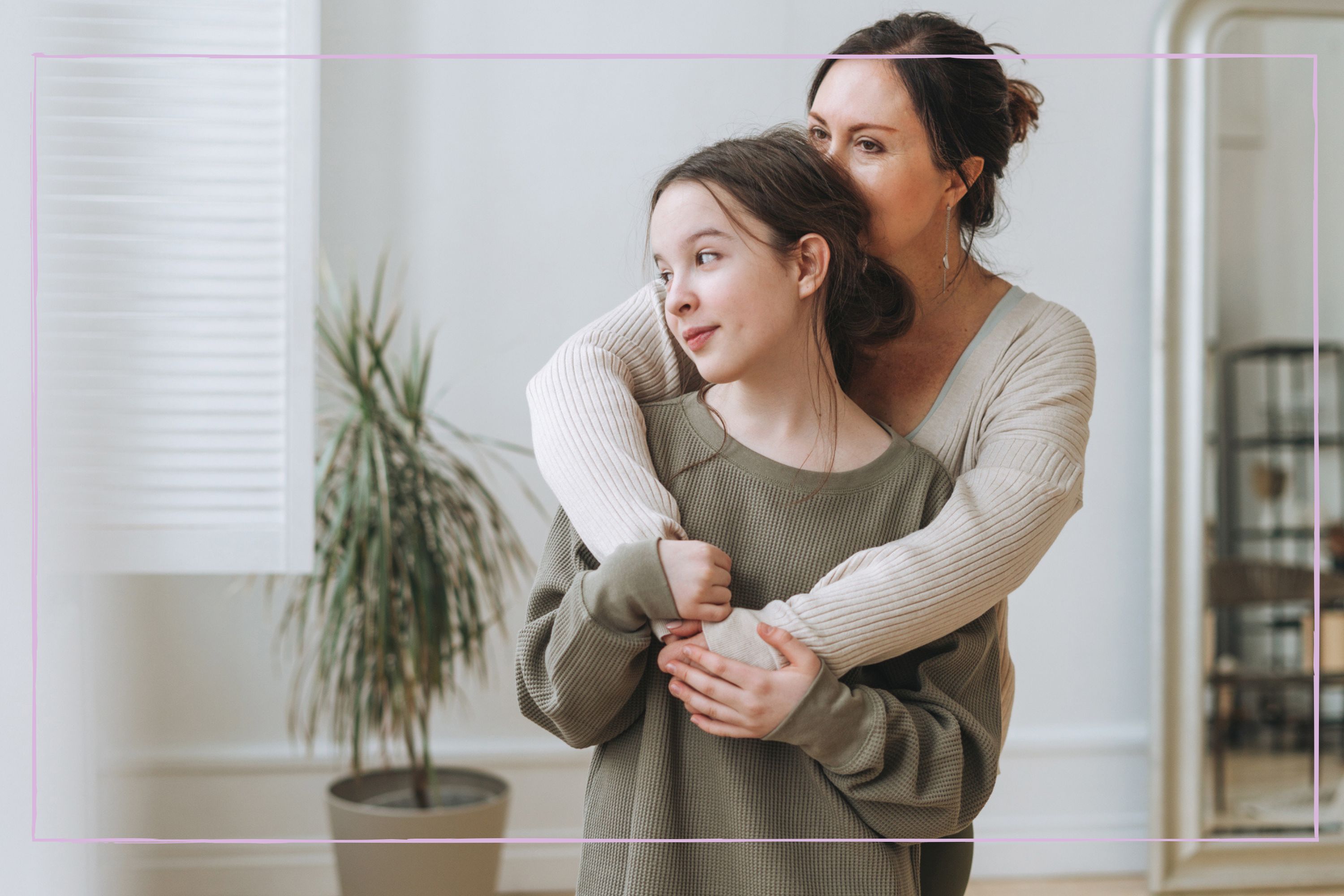 Strong willed teens don’t need to be ‘tamed,’ they need to be nurtured - expert shares how
Strong willed teens don’t need to be ‘tamed,’ they need to be nurtured - expert shares howIt might surprise parents when their strong willed child remains that way into the teenage years - instead of crushing this part of their temperament, an expert shares how to nurture it.
By Lucy Wigley Published
-
 We ask teenagers what they wish their parents had done differently, and their answers are surprisingly candid
We ask teenagers what they wish their parents had done differently, and their answers are surprisingly candidA lot of parents will wonder if their kids wish they'd done some differently, but never get to find out. We got to ask some teens this question, and here's their candid answers.
By Lucy Wigley Last updated
-
 9 things I'm doing to teach my teenage son about 'toxic masculinity'
9 things I'm doing to teach my teenage son about 'toxic masculinity'Influencers are having a worrying impact on young boys' behaviour and attitudes
By Debra Waters Published
-
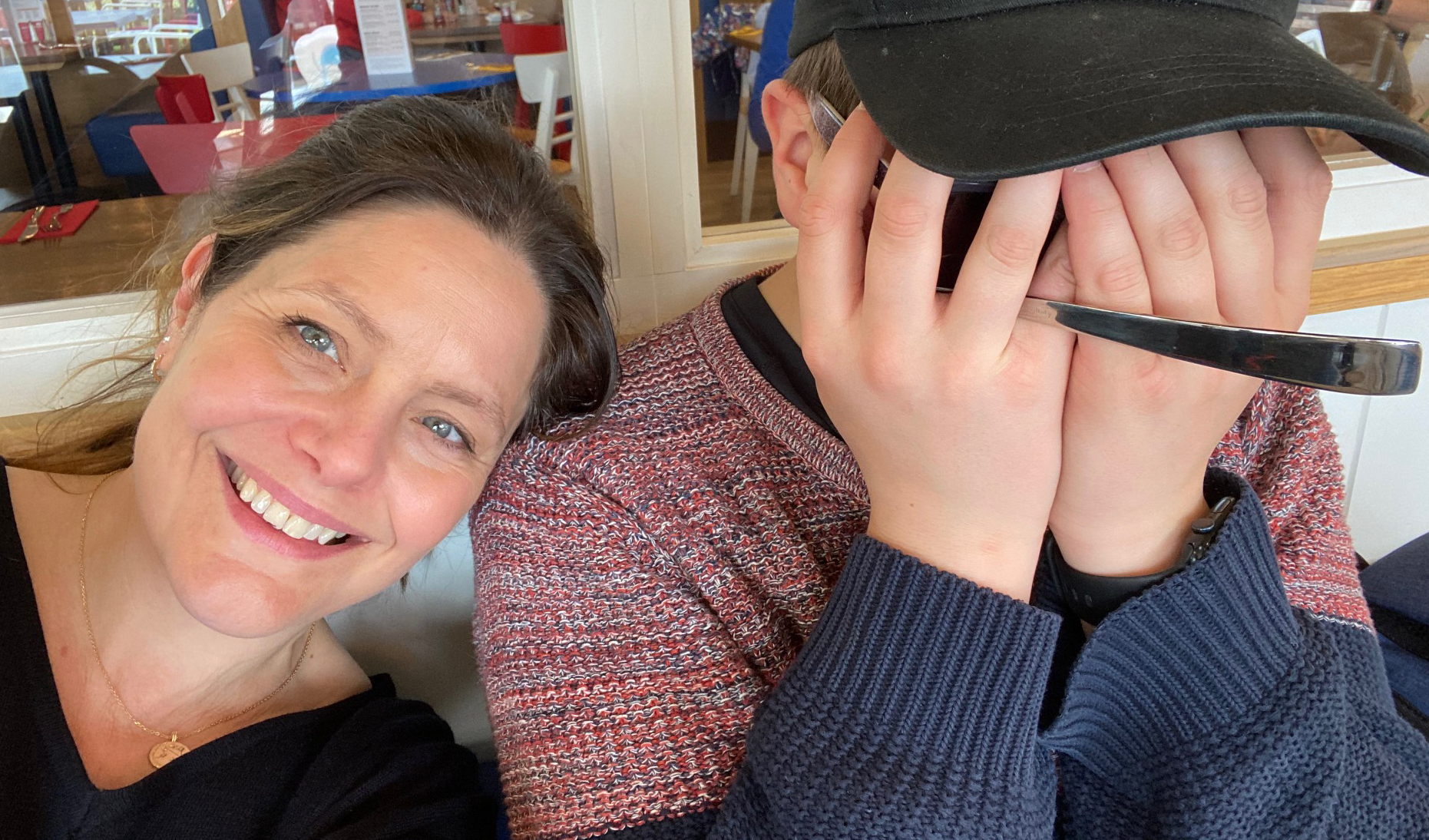 I have a 13-year-old son - here’s what I’ve found most difficult about parenting a teenager, and you might be able to relate
I have a 13-year-old son - here’s what I’ve found most difficult about parenting a teenager, and you might be able to relateMonosyllabic responses from our teenagers may sting, but it's normal
By Debra Waters Published
-
 What is sadfishing? How to talk to your teen about this online trend, and the impact on mental health
What is sadfishing? How to talk to your teen about this online trend, and the impact on mental healthHave you been wondering what is sadfishing? An expert shares why parents should have a conversation with their teens about this potentially dangerous practice.
By Lucy Wigley Published
-
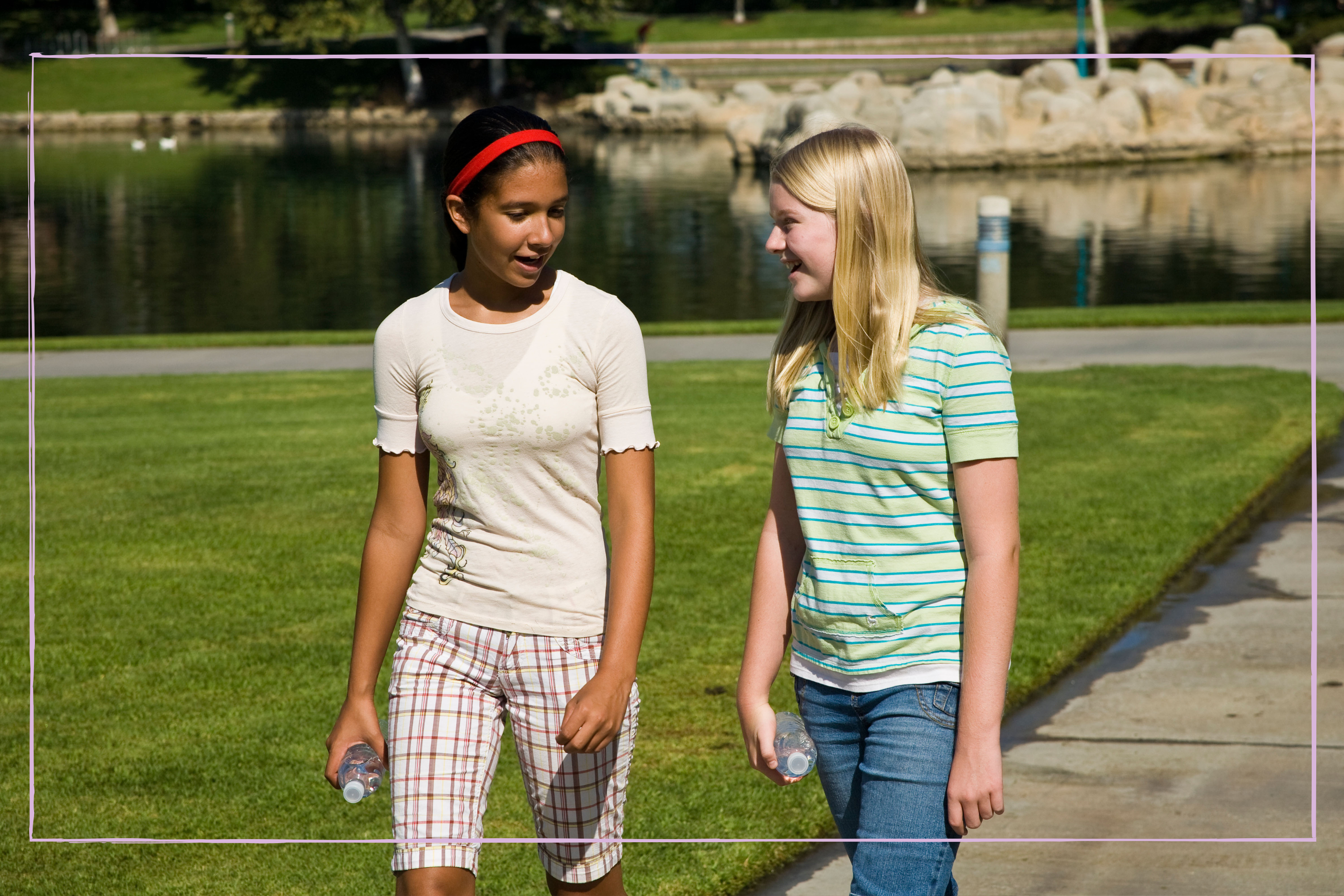 9 ways to let teenagers take positive risks this summer, according to an expert
9 ways to let teenagers take positive risks this summer, according to an expertHelp boost your teen's independence and confidence this summer with these small, manageable risks.
By Adam England Published
-
 What are 'Mickey Mouse' degrees? Expert reveals why this term is unhelpful for teens making higher education choices
What are 'Mickey Mouse' degrees? Expert reveals why this term is unhelpful for teens making higher education choicesWhat are 'Mickey Mouse' degrees? For teens embarking on those all-important higher education choices, it's an unhelpful term.
By Lucy Wigley Published
-
 Teens who display this one important quality during adolescent friendships, go on to be great parents according to research
Teens who display this one important quality during adolescent friendships, go on to be great parents according to researchA study has shown teens who display this one important quality during adolescent friendships, go on to be great parents - and it's fascinating.
By Lucy Wigley Published